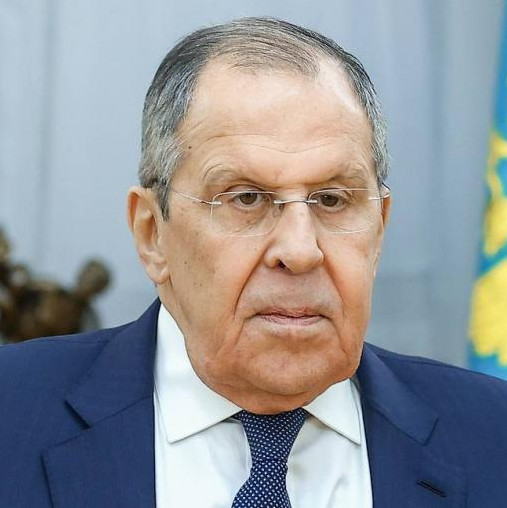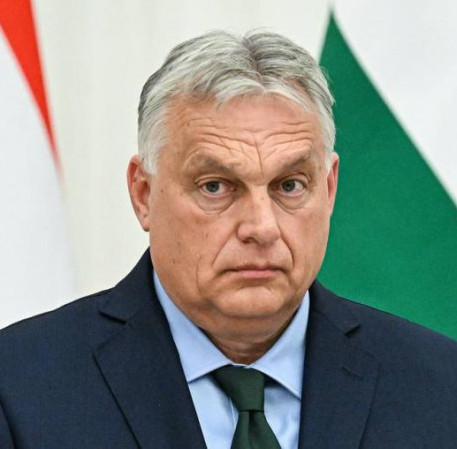Oil and gas are supplied to Belarus for two main purposes – for local consumption and to be forwarded to Western consumers. Officially, the conflict was sparked by the discrepancy in prices between these two flows, so let’s first clarify the situation with gas sold to Belarus. In 2002, Russia offered Belarus to set up a joint gas transit concern which would provide Belarus with gas at less than $20 per 1,000 cubic meters – the price set for Russia’s domestic consumers. Minsk rejected the offer, however not wanting to pay more for the Russian gas. In 2003 and 2004, Gazprom repeatedly said it wanted a share in Beltransgaz – Belarus’ gas transit company exporting gas to Western Europe – as a compensation for not raising the price. No reply came from Bearus.
When the gas price finally went up (very slightly, as we were dealing with an important ally) to $50, Minsk rejected it. In 2004, Russia cut off centralized gas supply to Belarus. For a few months, Belarus had to buy small amounts of gas from independent suppliers under short-term contracts at a range of prices. And when those contracts expired, they started withdrawing gas from the “other” pipeline, which was intended for European consumers. So in February 2004, Gazprom had to halt that, too. It was then that Minsk finally signed the new conditions - $47 for 1,000 cubic meters of gas for local consumption (compared to $230 for Europe and $130 for Ukraine). That agreement was extended till 2007. Finally, on December 31, 2006, the conflict which had reached boiling point by that time, was settled as follows: Belarus pays $100 for 1,000 cubic meters, while Gazprom buys 50% in Beltransgaz for $2.5 billion. The agreement did not affect transit shipments to Europe.
The oil situation is even more complex. Under the Common Customs Space agreement, Russian oil is imported to Belarus tax-free, both for local consumption and for transit. However, it is an international practice that the producer (Russia in this case) sets a duty on its reselling. That duty is $180.7 for 1 tonne of oil. The fact is that our neighbors refine two-thirds of Russian oil before exporting it to the West. Therefore, Moscow required that Minsk shared the profit – at a fair proportion of 85% to the producer and 15% to the refiner. Instead of a civilized response, Minsk slapped a tax of $45 for 1 tonne of Russia oil crossing Belarus en route to its Western consumers, which became effective on January 3, 2007. With that, Russia would incur an estimated annual loss of around $4 billion.
The calculation is based on the estimate that Belarus’ refineries are to receive 20 million tones of Russian oil this year, while Belarus itself only pumps around 2 million. Russian experts think that Belarus will buy Russia oil at a price that is 40% lower than the Russian export price and 45% lower than the world oil price. This seriously devaluates oil transit across Belarus which accounts for over 30% of Russian oil exports to Europe. So, after a four-day break, Belarus resumed oil shipments to the West. But legally and politically, the issue is still unsettled.
.
Its best part is that the relations between all parties involved are easily predictable. However, it is here that the current problems are rooted. Russia sees its energy exports as the key national development resource. The market allows us to set the gas price and sell oil at the highest possible price: an average of $50 per barrel in 2006 against $20 in 2003. Still, we are not to be deluded – the West will not allow Russia to regain its global role, even through energy. When European importers of our main product say they need to diversify energy sources, they mean they want to lessen their energy dependence on Russia. The demand for our oil and gas will of course go down sooner or later, but by that time we will have a stabilization fund we are earning today. So shall we try and gain as much as we can now, or deflate our demands in a hope the move will be appreciated? It is a modern ‘to be or not to be’ dilemma. On a local scale, we are interested in supporting Belarus as our historic ally and a most likely partner for the future, regardless of its leader’s personality. In any case, a “difficult” ally is better than an “easy” partner. Historically, the fact that Russia has recently abandoned a few friends in need – like [Erich] Honecker and [Mohammad] Najibullah – hasn’t earned it any lasting political respect, despite the one-time applause. Americans tend to back up their “friends” to the bitter end…
Belarus just like any other transit agent is interested in using this status as best it could. Literally isolated from the rest of the world, it almost fully depends on Russian imports, Russian market and Russia’s political support. This is only natural, since Russia’s oil and gas provide half of Belarus’ budget and ensure its internal stability. Whatever Russia’s attitude to Lukashenko, our export pipelines are laid across Belarus and can hardly be moved, at least in the near future.
Western Europe wants uninterrupted oil and gas supply, in strict accordance with the contracts regardless of political force majeures, and that’s only natural, too. For now, many of our European partners have tapped their “emergency” oil reserves: their average dependence on the oil pumped through the Belarusian transit pipeline is up to 20% (for Poland, almost 100%).
This winter is the warmest since 1922; the Europeans are unlikely to be cold. But the problem is deeper than that. What we lack is a politics-independent energy export system. Today’s bilateral agreements are vulnerable a priori: what’s the use of having agreements with the EU when Lukashenko or Yushchenko are in the way? The agreements with Ukraine and Belarus are often signed for different terms than those with EU nations. Strange as it might seem, the key commercial principle – the longer the contract, the higher the profit – works very poorly in the energy sphere. It is explained by common greed – what if prices go up or down next year?
Experts say what we need is an independent audit of the global energy reserves, and an equally independent estimate of the global demand based on the expected major energy consumers’ growth rate. Here’s the dilemma: do we need a free (and unpredictable) energy market or are we back to a planned economy?
Until that system is in place, energy resources will be subject to continued political manipulation. Take the Russia-Belarus scandal, for example: some would habitually attribute it to Moscow’s intrigues; others would blame Lukashenko’s malice. Then all would agree that “these half-Asians” are impossible to deal with. Regardless of the current conflict’s implications, the North-European pipeline should be laid after all.
Forgetting the global challenges, let us not forget what we were talking about here. Russia most naturally felt annoyed (hence the growing duties) by the fact that Belarus had earned $4 billion annually on re-exporting our oil and $600-800 on dispatching (retailing) our gas. Moreover, experts say these amounts are not even registered properly in Belarus’ budget. If that is so, who are we supporting – Belarus as part of the Union or specific individuals engaged in scheming on interstate integration?
To be honest, Belarus, too, has bitter comments to make. What was the use of forming a “union,” when Russia’s relations with its “saber-toothed friends” on both shores of the Atlantic and Pacific Oceans are much more predictable? The West, in turn, has the right to doubt our ambition of an “unfailing supplier” now that our oil exports get arrested one kilometer outside Russia’s border…
Emotions are transitory; but energy transit goes on, and the old controversies remain.


